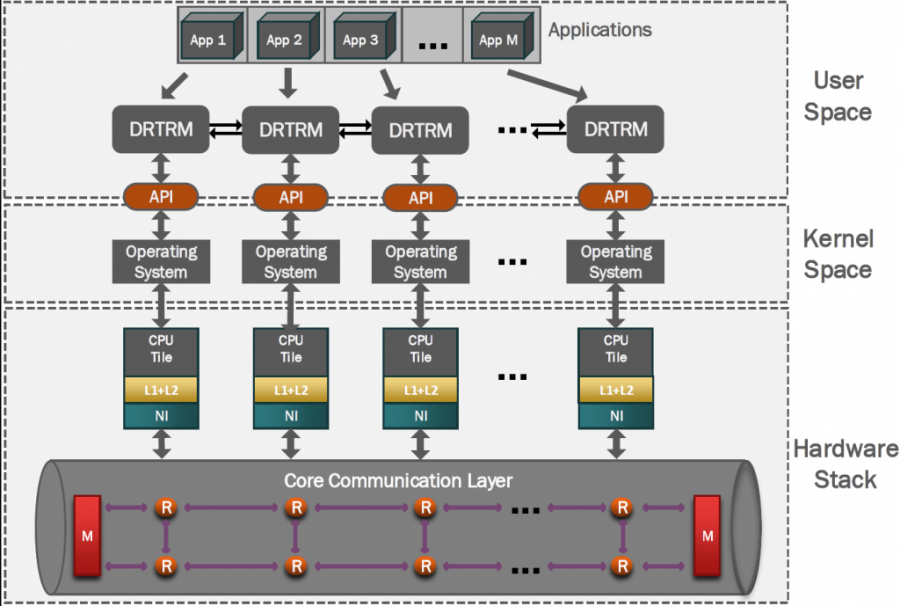PhD Thesis Final Defense to be held on July 6, 2018 at 11:00

Tsoutsouras Thesis Image
The examination is open to anyone who wishes to attend (Central Library of NTUA, multimedia amphitheater)
Thesis Title: Design Methodologies for Resource Management of Many-core Embedded Systems.
Abstract
Contemporary embedded systems include a variety of complex computing devices featuring high-end, architecturally rich processors, heterogeneous devices, many-core systems and new computing architectures at the system level, extending the concept of Internet of Things (IoT) to a multi-layer distributed infrastructure, known as Edge (or Fog) computing. The dissertation first focuses on the requirements and design of embedded applications, operating on systems of multiple nodes. The target applications belong to the medical domain and thus their design requirements include but are not limited to performance, since dependability and accuracy of operations is critical in this field. The design of the IoT-oriented applications is performed in a modular, pipelined manner in order to provide different run-time configuration knobs, for the effective operation of the device in a IoT Gateway based offloading environment. A many-core embedded system with Network-on-Chip topology is considered as a promising design alternative for the design of an IoT Gateway, able to meet the computational and communicational requirements, resulting from its interaction with numerous IoT nodes. An efficient run-time decision making mechanism is necessary for the many-core system to yield high performance operation. Due to the complexity of dynamically mapping many applications on a many-core system, a Distributed Run-Time Resource Management (DRTRM) framework is designed, implemented and evaluated on top of Intel SCC, an actual many-core NoC based computing platform. Motivated by the highly dynamic IoT environment, an analysis of the correlation of the arrival rate of incoming application requests and the effectiveness of DRTRM is performed, showing that a fast and resource hungry scenario of incoming applications can be the breaking point for the effectiveness of DRTRM. Moreover, the enforcement of a relevant run-time mitigation schemes is complicated due to the distributed decision making, which requires the consensus of many agents. This issue is mitigated by use of a Voltage and Frequency Scaling regulation policy, which indirectly slows down application admission, while requiring the co-operation of only a small subset of the agents of the system. The policy is implemented and evaluated on top of DRTRM, showing that it can relieve the congestion of applications under stressful conditions. Many-core systems are also characterized by increased probability of manifested hardware errors, thus SoftRM is introduced, a DRTRM augmented with fault tolerant features. The design of SoftRM relies on dynamic, workload-aware error mitigation, via the self-organization of healthy agents of the systems in order to replace the failed ones. Last, the concepts of distributed management utilized in DRTRM, are extended to aid the negotiation of resources in Edge computing systems with multiple IoT Gateways. These distributed nodes, make use of trade-based mechanisms, in order to dynamically optimize the offered Service Quality to their subscribed IoT devices, while meeting their run-time constraints.
Supervisor: Soudris Dimitrios, Associate Professor
PhD student: Tsoutsouras Vasileios
